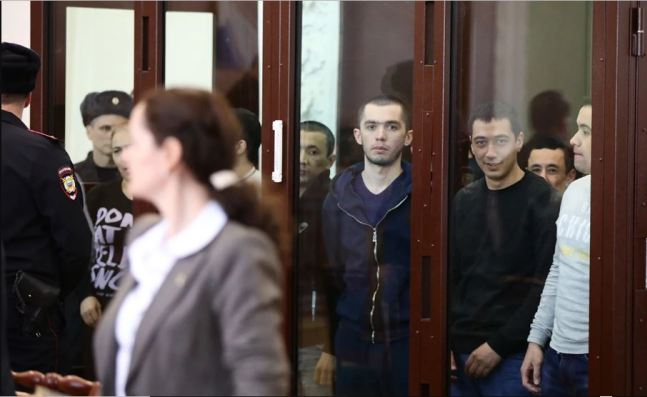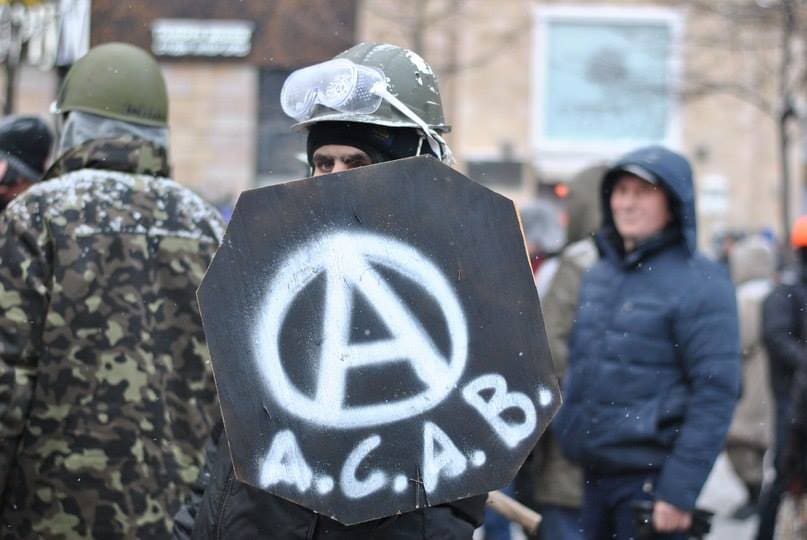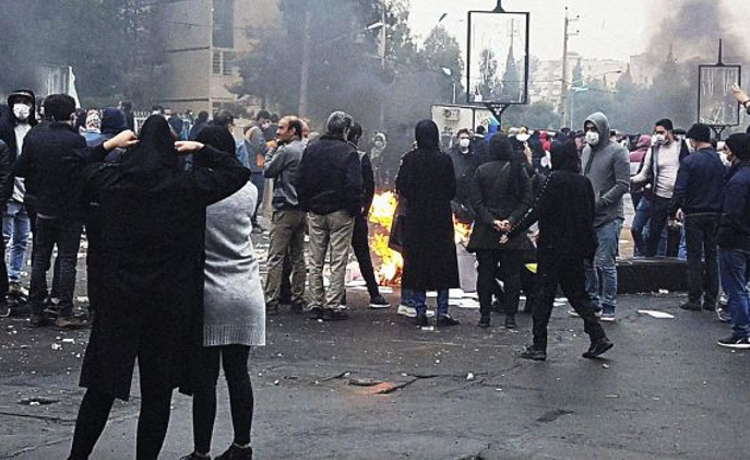My Generation
by Tommy Campbell for the Russian Reader
6 May 2019 (original post)
After a terrific, well-attended solidarity talk in support of the defendants in the Network case, held here in Berlin the other night, I spoke to a lovely young Russian activist.
I said to them that there were, of course, many more instances of wild injustice in Putinist Russia with which an engaged foreign audience could be regaled, such as the ongoing trial of several Central Asians, accused of complicity in the alleged terrorist suicide bombing in the Petersburg subway on 3 April 2017.
Like the Network case, the Petersburg subway bombing case has all the hallmarks of a frame-up. As in the Network case, there have been numerous allegations the defendants have been tortured by investigators.
“But the difference,” the young person interrupted me, “is racism.”
They meant that, since all the defendants hailed from Central Asia, there was no way to mount the successful solidarity campaign that has shone a harsh light on the Network case and garnered it widespread notoriety, especially within Russia.
The young person went on to tell me that a friend of theirs had been attending the subway bombing trial. She had told them it was horrific. The defendants had been assigned state-appointed lawyers who did doing nothing to defend them. The trial was such a flagrant frame-up that the interpreters working it had banded together to try and do anything they could to help the young people, who in all likelihood have been accused of terrible crimes they did not commit.
It goes without saying that all of them will be found guilty and sentenced to long terms in prison.
The case has been covered spottily by Petersburg and Russian media outlets, but I have seen very little outrage or even mild concern about it from my acquaintances on Russophone social media, most of whom live in Petersburg.
Many of these same people are now visibly bent out shape about goings-on in Israel-Palestine. In the past few days, they have been treating virtual friends like me to generous helpings of unsubstantiated hasbara.
Are they unconcerned about the miscarriage of justice perpetrated on nearly a dozen young Central Asians because they think all Muslims are terrorists and, by definition, guilty of every charge of terrorism laid at their door?
It has been a commonplace of Russian quasi-liberal thinking that Stalinism affected Russians so deeply it infected their collective DNA. The Stalinist bug, so this spurious argument contends, has been passed on to the new generation as well, even though the Soviet Union collapsed almost thirty years ago—before my interlocutor and huge numbers of other terrific young Russian social and political activists I know were born.
Supposedly, several generations must pass before the Stalinist bug will finally be expunged from the national genetic code and Russians can build a more democratic polity in their country.
In reality, there is a great deal of anecdotal evidence pointing to the new generation’s eagerness and readiness to live that way right now.
On the contrary, it is my own age cohort, the so-called last Soviet generation—who were born after Stalin died—who seem most afflicted by a kind of cognitive and emotional Stalinism that, often as not, emerges in their thoughts and deeds not as nostalgia or admiration for the real Stalin, but as dogmatic worldview that makes events in, say, Israel more real and important than most events in their own country and cities.
Given recent oddities around the Network trial and the unwanted negative publicity the case has generated for the FSB, I think there is a slight chance the powers that be might have decided to ratchet things down a bit. I could be wrong, but I would not be surprised if, when the trials in Penza and Petersburg resume after a long, unexplained recess, the defendants were indicted on lesser charges and then immediately released on probation, taking into account the long time all of them have spent in remand prisons since their arrests in late 2017 and early 2018.
There is no chance this will happen in the subway bombing trial for the simple reason that almost no one in Petersburg can be bothered to go to bat for a group of non-Russian Muslims or even bat an eye when they are tortured and framed exactly like their non-Muslim contemporaries.
* * *
Marrying the Mob
by Tommy Campbell for the Russian Reader
11 May 2019 (original post)
On Facebook, I regularly push stories about Syria and, especially, Russia’s criminally disastrous involvement there. Unfortunately, it has had no visible effect on any of my Russian Facebook friends—with one exception.
I should thank Allah for that many “converts.”
In international politics, marriages of convenience among dictators and wannabe dictators always lead to mayhem and unintended fallout for the innocent bystanders in their immediate vicinity.
Let us pretend, for the sake of argument, that Trump and his campaign really did not collude with Putin and other Russian government officials to sway the 2016 US presidential election.
Even if that were the case, Trump’s overweening admiration for Putin’s style of bad governance has still had catastrophic effects on the country he is supposed to be leading.
For someone like me who is all too familiar with the bag of tricks known—maybe somewhat inaccurately—as Putinism, it has been obvious Trump wants to steer the US in a quasi-Putinist direction.
While the republic, its states, and the other branches of government can mount a mighty resistance by virtue of the power vested in them, Trump can still cause lots of damage as an “imperial” president, even if he is booted out of the White House two years from now.
Likewise, Russians can imagine there is a far cry between living in a country whose cities are besieged and bombed by the country’s dictator, and what Putin has been doing in Syria. What he has been doing, they might imagine, mostly stays in Syria, except for Russian servicemen killed in action there, whose names and numbers are kept secret from the Russian public.
In reality, it is clear that the Kremlin’s neo-imperialist turn in Ukraine, Syria, etc., has made the regime far more belligerent to dissidents, outliers, weirdos, “extremists,” and “terrorists” at home.
Over the last five years, more and more Russians have fallen prey to their homegrown police and security services either for what amount to thought crimes (e.g. reposting an anti-Putinist meme on the social network VK or organizing nonexistent “terrorist communities”) or what the Russian constitution does not recognize as a crime at all, such as practicing one’s religion (as e.g. Muslims and Jehovah’s Witnesses do).
Putin has adopted an Assadist mindset, therefore. He, his cronies, and the ever-expanding Russian security services, whose mission is making the paranoia of their superiors come true by meeting quotas of harassed, interrogated, arrested, tortured, jailed and convicted “extremists” per quarter, have come to imagine the only way to avoid the mess in which Assad found himself is to hammer anyone in Russia who sticks their necks out too far, whether intentionally or not, so hard that everyone else will get the clue: dissent and even plain difference come with a heavy price tag, so they should reduce their dissent and difference to an invisible minimum.
Things were not exactly peachy during the first years of the Putin regime, but they became a hell of a lot worse after the Kremlin invaded Ukraine and went flying off to Syria to save Assad’s bacon from the fire of popular revolution.
As long as Russia remains entrenched in those places, there can be no question of progress on the home front, especially when the vast majority of Russians pretend very hard not to know anything about Syria and their country’s involvement there, and have grown accustomed to the Ukrainian muddle, meaning they mostly avoid thinking about what has really been happening in Eastern Ukraine, too.
Reprinted with the kind permission of the author
Featured image: the defendants in the Petersburg subway bombing trial. Source: David Frenkel via the Russian Reader





